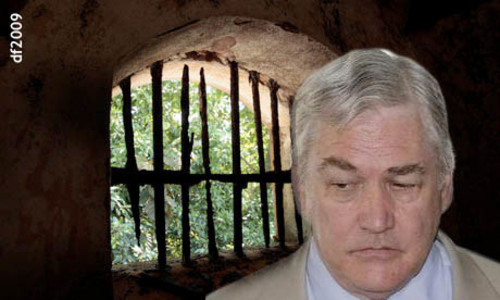The United Kingdom election on Dec. 12 will be of great importance to the Western world. The departure of the U.K. from the European Union will be like the secession of California from the United States, or British Columbia from Canada, a very serious blow. And the return of the U.K. to close co-operation with the United States and Canada would enable three of the G7 countries to join forces, with a combined GDP of more than twice China’s — substantially greater than the continuing EU and with a better economic growth rate. Such a shift will provide, though leftist commentators (who abound in swarms of Old Testament plague-proportions all over the Western world) will studiously deny it, a reliable public policy barometer pointing away from fetishistic globalism toward realism in alliances, capitalist economics, and Anglo-American values generally.
The British political parties are an unusually mixed smorgasbord. The Brexit Party seeks to scrap Prime Minister Boris Johnson’s deal and “crash out,” as the detractors of that policy call it, not pay a farthing to Europe on departure and not be in any hurry to rush into a free trade agreement with Europe either. But their star attraction, founder Nigel Farage, is not standing for election. The tenuously governing Conservative Party obviously supports Johnson’s deal with Brussels: Brexit but a free trade agreement fairly similar to Canada’s with the EU. The official opposition Labour Party seeks a second referendum, but is undecided what result it wants from it; a policy that just kicks the can down the road and sounds like more of the past three chaotic years. And the Liberal Democrats, who have been a splinter party for the past two elections and most of their history in the past 90 years, have revived as the respectable way to vote, to scrap Brexit completely, cancel Clause 50 (notice of withdrawal from the Union), and remain in the EU — the referendum never happened. There is the menu — out the door and slam it; out but retaining tariff reductions and pretty free movement of goods and people though restricted immigration; another referendum and Groundhog Day sequels; or a penitent return to Brussels with (flat wool) cap in hand.

The Northern Ireland parties are mainly “remainers” to avoid any border with the Republic of Ireland, and the Scottish Nationalists (separatists) are militant remainers. Polls indicate a Conservative majority of MPs, but with no more than 40 per cent of the vote, the rest shared by three national and four regional parties, including Sinn Fein, parent of the Irish Republican Army, which normally elects a number of MPs who decline to take their places as they refuse to pledge allegiance to the Queen. (She has been exquisitely discreet, but is generally believed to be a “leaver” at heart, as Europe reduces her prerogatives.) This election has some of the character of multi-party French or even Israeli elections, but on a first-past-the-post constituency basis.
Boris Johnson, as the Euro-fanatic Economist magazine remarked (Nov. 2), is variously regarded as a clown, a stout and rugged rugby captain, a Machiavellian schemer, and a bold gambler. He is a bit of all of those, but has moved sure-footedly from editor of the Spectator to mayor of London to foreign secretary to leader of the Euro-leavers to prime minister, and he is the man the country required to slice this Gordian Knot. The Brexit history has been the most dismal failure of British parliamentary and electoral government since the English Civil War almost 380 years ago, and all sides recognize that it must be resolved (without Cromwellian severity, of course).
The Brexit history has been the most dismal failure of British parliamentary and electoral government since the English Civil War
David Cameron was re-elected prime minister four years ago with a good majority, and was an unambiguous remainer, who had promised a referendum. Instead of including a third option of negotiating substantial changes, he promised “full-on treaty change” followed by a referendum to stay or remain, confident Britain would never vote to leave. Having failed to negotiate seriously with Brussels, his referendum campaign was based entirely on terrorizing the country with predictions of dire consequences if it walked from Europe. He lost the referendum and resigned. Bank of England governor Mark Carney, the former governor of the Bank of Canada, played a prominent and discreditable role in promoting “Project Fear” as it was derisively called. (He also absurdly pushed the central bank into environmental questions where it had no business.) Cameron was followed by Theresa May, who claimed to be a leaver, but was really a remainer, and negotiated an arrangement with Brussels that she claimed was Brexit but it wasn’t an exit at all. Her measure was rejected three times by Parliament and she resigned. (Tony Blair was the only one of the seven U.K. prime ministers since Harold Wilson 42 years ago who wasn’t forced out at the polls or by Parliament or the governing caucus. It’s a tough job.)

Boris Johnson, a leaver, was elected by the 319 Conservative MPs and 160,000 party members to succeed May, and announced that Britain would leave on Oct. 31 if an agreement were not reached. Mrs. May had never even raised the possibility of leaving without a comprehensive arrangement, so Brussels was under no pressure at all to negotiate seriously. Despite a hail of brickbats, Johnson did negotiate a much broader exit agreement with Brussels and it was passed by Parliament through second reading. But the remain majority of MPs across five parties plus 20 renegade Conservatives was trying to ignore the referendum result and to defer adoption of Johnson’s bill and deny him an election, under Cameron’s foolish Fixed Term Parliaments Act (other countries that imitate the United States usually emulate its worst qualities and institutions). Johnson attempted a prorogation that was declared by the (newly imitatively named) Supreme Court to be illegal. Having requested, on demand from Parliament, an extension of the date for departure (followed one minute later by a suggestion that the request be ignored), it was finally agreed that there would be an extension to the end of January 2020 and a general election on Dec. 12. It’s three quarters of a loaf for the leavers, and half a sugared pill for the remainers, and a bull’s-eye for the compromisers.

The main reason a majority of Britons wants to leave the EU is the micro-management of British public life and British courts and legislators by a regime in Brussels that is not answerable or accountable either to the European Parliament or to the governments of the major constituent states. The second reason is immigration: the famous Polish plumbers are welcome (and much needed), but masses of penniless and unskilled migrants from the Middle East and Africa coming to Britain via Europe are another matter. Britain will not replace the institutions it has developed over centuries with newly invented institutions run by foreigners, or revert to the level of government accountability that followed the Magna Carta in 1215. The main argument to remain has always been the economic scare: according to the same people who predicted a worldwide economic crash for the day after Donald Trump’s election, British incomes will decline on average by six per cent over a few years because of a huge exodus of the financial industry from London to Frankfurt (completely implausible).
Unless the British voters plumb a new depth in perversity, Johnson should win a sizable majority, very little of the London financial industry will depart, and there will be a thunderous in-rush of capital investment to celebrate Britain’s increasing proximity to the United States and reconfirmation as a low-tax country, especially the rejection of the Labour Party’s outright advocacy of widespread nationalization of industry, sharply higher taxes in upper personal income brackets, increased powers to organized labour, and wild fiscal incontinence. The entertaining Boris Machiavelli will crush the born-again Marxist Labour Party and its advocacy of what French President Emmanuel Macron has called “Cuba without the sun.”
• Email: cmbletters@gmail.com



























